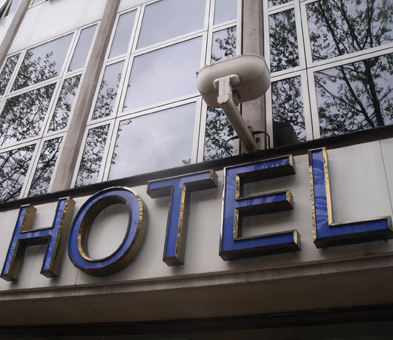Security threats to business travellers keep emerging in new locations, as businesses expand into developing markets, and accommodation options multiply. But according to a new guide from the United States-based ACTE Global (Association of Corporate Travel Executives) and medical and security emergency response company International SOS, many corporate travel programmes are unprepared to address their safety challenges. In fact, Ipsos MORI data finds that just 19pc of organisations implemented safety and security checks for accommodations in 2017.
Greeley Koch, executive director of ACTE Global, said: “Hotel security is an often-overlooked component in ‘Duty of Care’. It simply is not enough to create security policies based only on air travel and location-based threat assessments. Even some places we would consider ‘safe’ have experienced serious terrorist attacks on hotels. Travel managers must understand the importance of making sure their travellers are safe at every stop on their itinerary, from the airport to the convention centre to the hotel.”
James Wood, Security Director at International SOS and Control Risks added: “Organisations are increasingly sending travellers to higher risk locations, but security and safety considerations are not keeping pace with commercial priorities. Businesses across industries are growing their footprints in medium to extreme risk destinations, but the majority of decision makers are not taking the time to implement hotel safety and security checks.”
Overall, the guide finds that failing to make hotel security checks not only affects traveller well-being; it can also be costly. Litigation and damages can have a significant impact on businesses’ bottom line, whether or not a case is adjudicated in the employer’s favour. Labour and employment law firm, Fisher Phillips, reports a case in which an organisation paid damages of $300,000 to the spouse of an employee severely injured while staying overseas.
Doing hotel safety and security checks entails information gathering and analysis that allows organisations to make smarter decisions, both before a trip and during travel. In one International SOS case study, a school was able to save more than $96,000 by securing a medical service – including an on-site doctor – in advance of a trip during which several students fell ill. This advance planning and understanding of their options for on-site treatment at the hotel itself allowed them to act quickly and avoid a costly evacuation, the firm says.
For more on hotel safety, download “Hotel Safety: A Guide to Staying Safe for Employers & Travellers” via the International SOS website.
Tips include:
– Check that the locks on doors and windows work inside your room — and use them.
– Have a grab bag of essentials including your passport, water, and phone charger prepared in advance.
– Leave the light on, so that you can easily check that the room is secure on returning. If a room key card is required to keep the electricity on, ask reception for an extra one.









